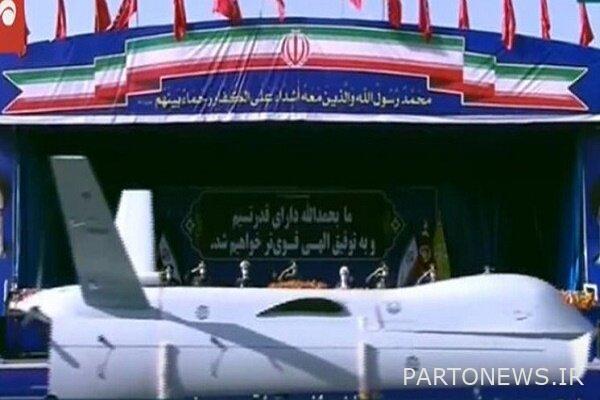Iran is a drone superpower – Mehr news agency Iran and world’s news

Mehr News Agency – International Group: In early July, the White House claimed that Russia had turned to Iran for the supply of hundreds of drones, including armed drones. US national security adviser Jake Sullivan said it was “not clear” whether Iran had delivered the drones, but that Tehran was preparing to train Russian forces to use them. Following the attack on Ukraine and the prolongation of this war, Russia has faced a shortage of drones, and Iran has been one of the important producers of drones for several decades despite international sanctions. Iran’s drones are one of the sources of the country’s military power and also a vital element to strengthen its position among regional allies.
“Al-Arabi Al-Jadeed” website in an article entitled “Why can Russia turn to Iran for the supply of drones?” According to Stasa Salakanin, an independent journalist, Iran has been introduced as a drone superpower:
Russian forces reportedly lost a large number of drones during the invasion of Ukraine, and Russia is turning to foreign and regional partners to make up for the shortage. Now that the war in Ukraine has turned into an artillery duel, drones have become more important for surveillance and reconnaissance and direct attacks. In particular, Moscow lacks armed drones such as Turkey’s Bayraktar TB2, which the Ukrainian military has successfully deployed. In addition, Russia’s domestic production cannot meet this growing demand; Especially, Russia’s capacity to produce armed drones is limited. In general, the Russian drone lags behind the rest of the world, for reasons related to the negative attitude of the country’s air force towards drones, which also prevailed in many Western militaries until a quarter of a century ago.
It is not surprising that Russia is approaching Iran in a situation where it needs to react quickly to the changing dynamics on the frontline of Ukraine. On the one hand, this issue is due to the sanctions imposed on Russia, but on the other hand, it confirms Iran’s position as a drone superpower; Tehran’s drone technology is used in Iraq, Syria, Gaza Strip and Yemen. Iran has also exported commercial drones to Venezuela, Ecuador and several African countries. Although international sanctions have hindered Tehran’s potential to purchase weapons or develop an expensive air force (such as the Persian Gulf countries and the Zionist regime), Iran has focused on building and developing indigenous combat drones.
According to some experts, Iran’s drones can compete in the world market. These drones are as advanced as Chinese or Western products. In addition, Iran’s drone program was launched in the late 1980s and is used by a diverse range of actors throughout the Middle East. Iran also uses relatively inexpensive drone systems and is one of the few countries that has an active industry of this type. Therefore, Iranian drones are feedback-testing systems on the battlefield, and this means that Tehran has both the experience and the knowledge to help Russia in the war in Ukraine.
According to western media reports, Mohajer 6 and Shahid 129 drones can be transferred to Russia. The Mohajer 6 UAV, which entered the production line in February 2018, is capable of carrying a multi-spectral surveillance payload or four precision-guided munitions. In addition, the Ababil model UAV (especially the Ababil 3) is said to be the most likely option for export to Russia as it has a tactical role similar to the Russian Orlan 10 UAV. Orlan 10 is a multipurpose UAV with a medium range (between 120 and 600 km from the launch station) with a flight time of 18 hours.
From the point of view of bilateral relations, the possible export of Iran’s UAV to Russia can open a new chapter in the relations between the two countries. Although Tehran and Moscow had close relations before, this new relationship can make them even closer. However, similar agreements, at least in the military field, seem unlikely at the moment because Russia is relatively well-equipped in other military dimensions, except for drones.

